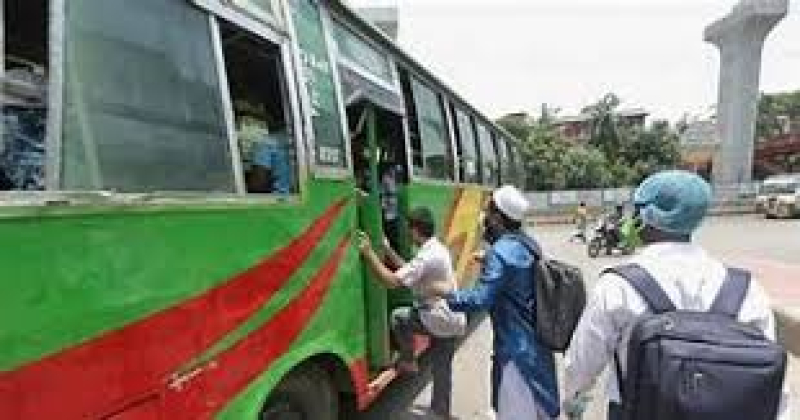- Key in your hands, use it wisely: Prof Yunus tells voters |
- Yunus Urges Voters to Shape a ‘New Bangladesh’ |
- Bangladesh Polls: Campaign Ends as Voters Weigh Pledges |
- Bangladesh Heads to First Gen Z-Driven Competitive Poll |
- EC Lifts Mobile Phone Ban, Bars Photos Inside Booths |
Our buses are not fit for Smart Bangladesh

In the cacophony of Bangladesh's roads, one element stands out, not for its efficiency or reliability, but for its sheer decrepitude: The state of our public buses. According to recent statistics provided by the Bangladesh Road Transport Authority (BRTA), out of a reported 41,462 buses in the capital, a staggering 21,445 buses are deemed unfit for service.
As they navigate through congested roads, these dilapidated vehicles not only contribute to the chaos but also pose significant risks to the safety and well-being of passengers. To that end, it is high time we address this pressing issue and prioritize revamping our bus fleet, and make it fit for a nation that is looking to become a “smart” nation in less than two decades.
The sorry state of Bangladesh's buses is a reflection of years of neglect and mismanagement. With many buses operating well past their recommended lifespan, breakdowns, accidents, and fatalities have become all too common occurrences. Moreover, the lack of adequate maintenance exacerbates the problem, leading to frequent mechanical failures and putting passengers at risk.
As a result, the safety of commuters is compromised daily, with poorly maintained buses posing a threat to both life and limb. Additionally, these unfit buses are a major contributor to environmental pollution, further exacerbating the challenges.
The government must prioritize investment in the modernization of our buses, replacing old buses with newer, safer models equipped with modern amenities. Efforts should also be made to enhance the overall efficiency and accessibility of public transportation; merely constructing metro rails and elevated expressways are not enough if we do not maximize their efficiency.
Such actions will not only enhance the safety and well-being of our citizens but also alleviate the burden of traffic congestion and pollution.

